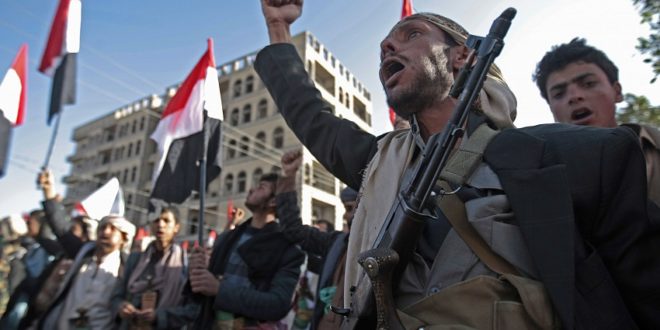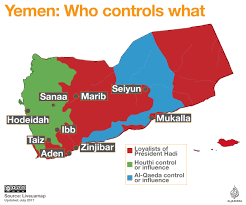Shehab Al Makahleh and Maria Al Makahleh (Dubovikova)
Peace and stability in Yemen is likely to succeed only when all major players and the five permanent United Nations Security Council members take honest and true measures to end the bloodshed in this poor country, which pays the bill of other countries’ rifts and disputes and has been transformed in a battlefield of their interests.
The roots of Middle East armed conflicts are as multifarious and effervescent as the region’s social fabric. Modern challenges mirror heirloom of imperial dominance and ruthless despotism. They also echo changes in political perceptions and in relationships with political communities. Fierce non-state actors exploit legitimate complaints to fan the sparks of violence.
Since the inception of the Arab Spring in 2011, Yemen has been under the focus of global players and media. The conflict has been developing in a dramatic scenario, turning into the complicated civil war, tearing the country in all dimensions, following new and old lines of schism. Yemeni humanitarian situation was already acknowledged by the international community as a true humanitarian catastrophe, to stop which international community needs at least ceasefire agreements and start of political process. But the attempts to reach any agreement between main belligerent parties, until now have been collapsing. And it seems that the chances to reach any are totally vain.
With the killing of former Yemeni President Ali Abdullah Saleh, after more than 40 years of political life, 33 years of ruling the country, it is slated that the war between the Houthis and the General People’s Congress Party will open a new chapter in the Yemeni tragedy. The true war is just about to start. The reasons for the Houthi distrust of the former Yemeni president was his “contradictory” alliances: once with Saudi Arabia and later with the Houthis and then back to the Arab Coalition. Thus, the military conflict will be multifaceted in Yemen: The Houthi-Saleh, the Houthi Muslim Brotherhood (the Yemeni Reform Party), the Saleh-Muslim Brotherhood.
Amidst this shift in Yemen politically and militarily, the scene looks gloomy as the Houthis will be openly backed by Iran and other key players in the region while the legitimate government of Hadi will be backed by the Coalition and Saleh’s General People’s Congress Party. The U-turn in Saleh’s position towards the Houthis was based on an advice from the UAE to rehabilitate the forces of the Congress Party to reach a result in order to put an end to war at any cost.
With the solution of the Syrian conflict in the offing, two dynamics will define political change in Yemen for years to come. The first is identity, faith and race. The second is the young generations of Yemenis who are more than 75 percent of the population, living in poor conditions that would aggravate their future dreams and would make them victims for other countries’ political agendas and Islamist ideologies.
Peace and stability in Yemen is likely to succeed only when all major players and the five permanent United National Security Council members take honest and true measures to end the bloodshed in this poor country, which pays the bill of other countries’ rifts and disputes and has been transformed in a battlefield of their interests. The Saudi-led coalition has to reconsider its approach to the Yemeni conflict, as the continuation of the current policies or even intensification of the military actions will only aggravate the situation, enhance the Houthi resistance, strengthen the Iranian involvement without bringing the conflict to an end.
The coming few months are heating up in Yemen because there is no comprehension of the difficulties of reforms due to rival identities which derailed the political approach stemming from suspicious interference from regional countries which try to export their domestic rifts and issues to other states, turning the hotspots into proxy wars destabilizing the region and having far-going consequences. Since the beginning of the Iran-Iraq war in the 1980s, the same scenarios recur in various forms because of major players exporting their internal difficulties to their neighbors to avoid any domestic repercussions.
The picture is vibrant. Yemen is riddled with turmoil, gushes of violence and autocratic governments amidst intervention of some regional powers. Thus, it is blatant that Yemenis have an uphill battle to fight and to reach settlement themselves without listening to external factors and other countries’ demands, all of which have agendas to dictate and achieve in Yemen at the expense of Yemenis. Dialogue is the only way to stabilize the region, stop the deepening Shia-Sunni divide and stop the spread of proxy wars, as the Saudi-Iranian confrontation is getting moved into other countries, like Syria and Lebanon.
First published at Valdai Club
Cover Photo:Hani Mohammed/AP
 Geostrategic Media Political Commentary, Analysis, Security, Defense
Geostrategic Media Political Commentary, Analysis, Security, Defense







You must be logged in to post a comment.